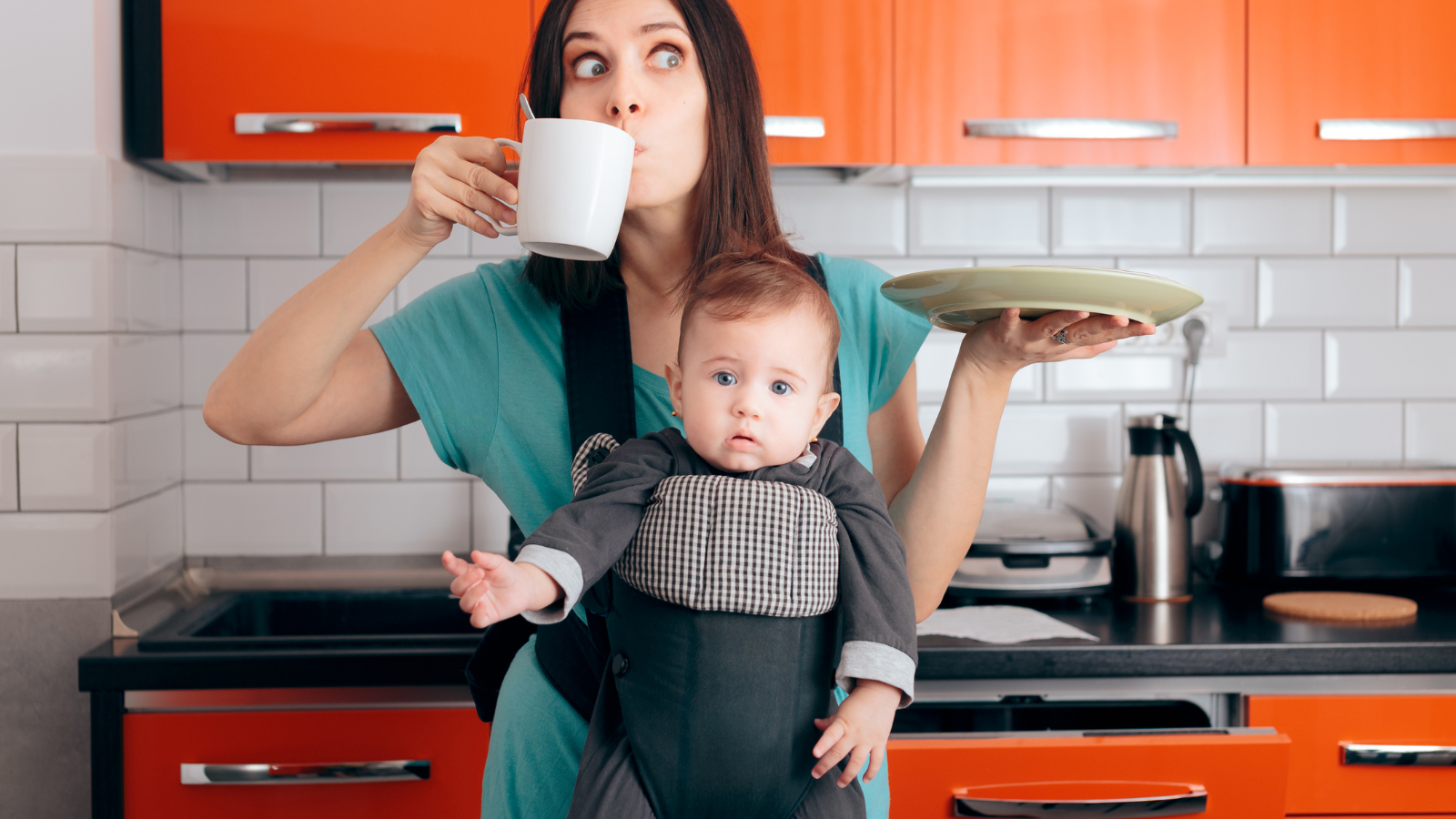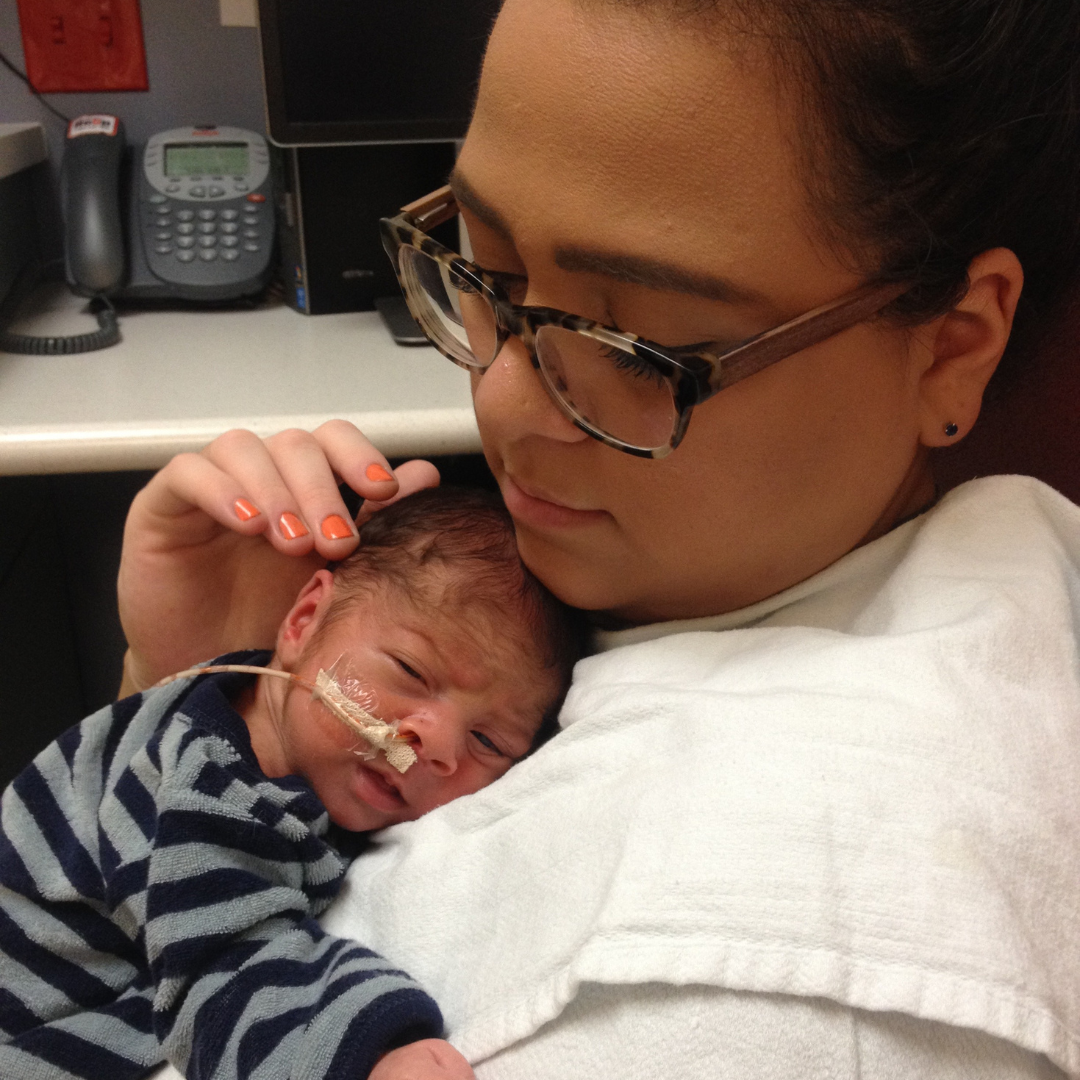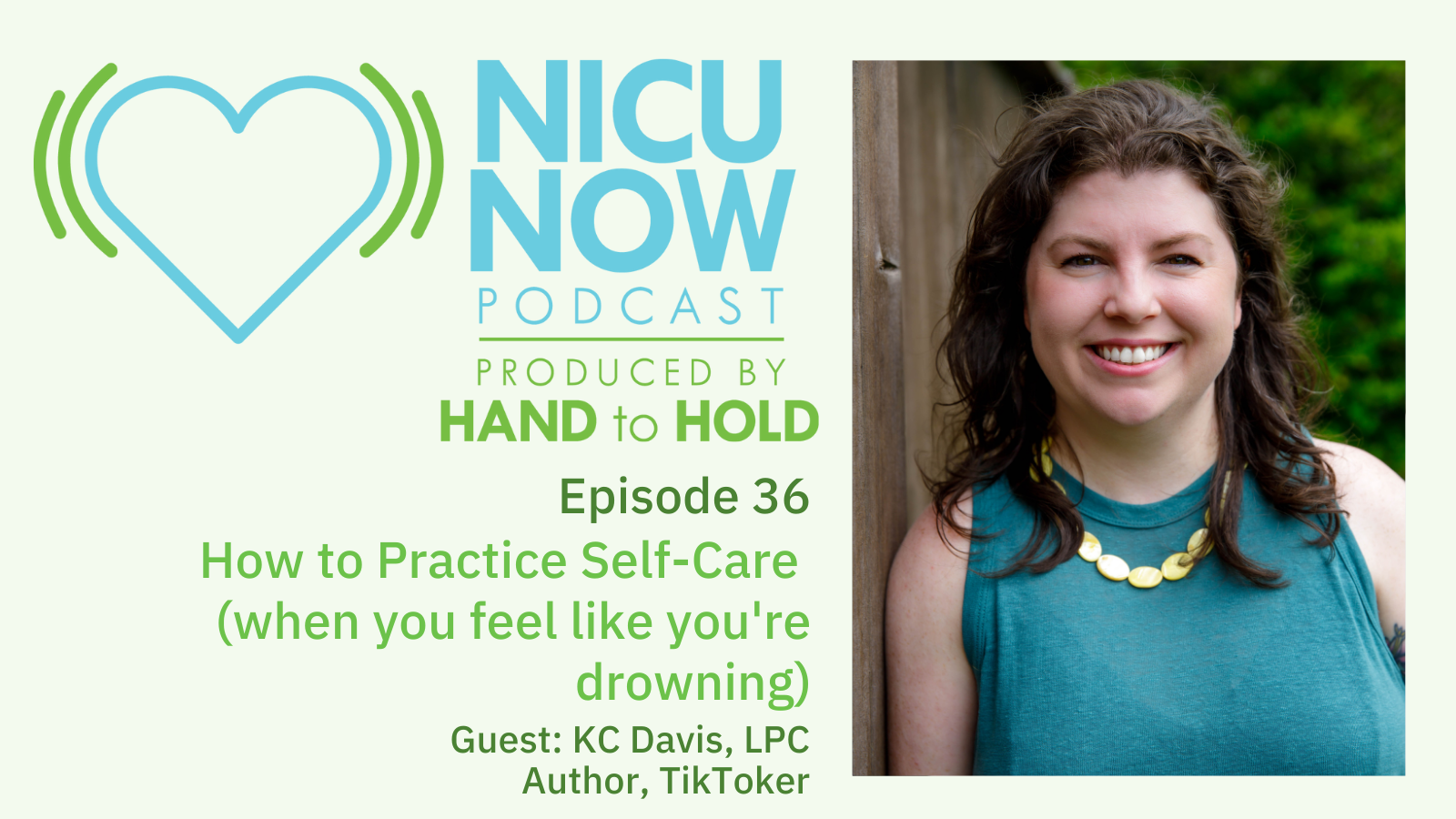The following article was created from our NICU Community Conference session with KC Davis, How to Practice Self Care (when you feel like you’re drowning). Listen to episode 36 of the NICU Now podcast to hear KC’s full session. To learn more about our annual NICU Community Conference, visit handtohold.org/conference. This article contains affiliate links, meaning Hand to Hold earns a small commission for qualifying items, at no additional cost to you.

Having a baby in the NICU is a difficult time in any parent’s life. Balancing time with your baby with responsibilities at home and at work is challenging, even under the best circumstances. And while you’re trying to learn how to navigate this new world of parenting a medically complex child, you’ll often be told, “Don’t forget to take care of yourself!”
When we hear the term “self care,” what comes to mind? Journaling? Bubble baths? A pedicure? Alone time? A night out with friends?
All of those activities require something extra.
I hate the term self care. Pop culture and pop psychology has made it so the term doesn’t really mean anything.
So much of the “self care movement” requires us to add something to our already never-ending to do list. And when you can’t fit it in, it can be really crushing to learn that there’s one more thing that you’re not doing right.
The truth is that most self care advice is just not helpful when you’re in a survival period of life.
So what does self care look like when you feel like you’re drowning?
Real self care is a motive shift.
We need to let go of the idea that if we don’t keep our home “up to par,” that it’s somehow a failure on our part as a person.
What we call “chores” are really care tasks – ways you care for yourself. Care tasks are morally neutral. They don’t have anything to do with whether you’re a good or bad parent, a success or a failure. You’re not a failure because you can’t keep up with laundry. Laundry is morally neutral.
We don’t do care tasks because we are morally obligated to do them or to meet some standard. We do them because we deserve to function in our homes.
Try this: Make a closing duty list.
“Cleaning the kitchen” can seem ambiguous and overwhelming. Think about it this way: What can you do to make this area functional for “Morning You?” Set Morning You up for success by creating a closing duty list with only the tasks that you need to have done in order to make your kitchen and living room a functional space for Morning You. That may be setting the timer on the coffee pot, loading and running the dishwasher, wiping down the counters, putting away any food.
I also have a “survival day closing duty list.” It has much fewer tasks. My regular closing duty list is a kindness to Morning Me. My survival closing duty list is a kindness to Present Me. Which do I need at that moment?
Real self care is letting go of perfectionism.
When we focus on ourselves as being inherently worthy of functioning, we don’t have to worry about doing it perfectly. Perfection is not necessary for functioning.
Your worthiness and your success as a parent doesn’t have to do with how productive you are. And productivity needs to be reevaluated when life’s circumstances change. We can’t maintain the levels of productivity that we are used to while adding on additional stressors of caring for a medically complex child.
Real self care is giving yourself permission to prioritize your life according to your family’s needs.
In times of stress, we need to prioritize mental and physical health. What are the absolute necessities?
- Sleep is not optional.
- Rest is not optional.
- Food is not optional. And food is morally neutral. Times of stress are not times to focus on going on a diet.
- Connection with others is not optional.
A note about sleep and rest: Your needs for rest and sleep are greater during times of trauma and stress. And rest does not equal sleep! Rest is a recharging activity that happens when you are conscious. You are not lazy to prioritize rest over other things.
Real self care is self compassion

Photo Courtesy Heather Gmur
There are going to be moments where we feel like we are failing, whether it’s dishes piling up, difficulty giving all of our kids the attention we feel they need, making mistakes at work or at home because we are so tired and stressed.
Real self care is taking a moment to stop and recognize when you are berating yourself, when you are shaming yourself, and stopping and making the choice to show yourself some compassion.
It’s replacing “Why can’t I get this?” with “This is very hard for me right now. I am so sad and overwhelmed. I am not doing things perfectly, and that is hard for me. But I am allowed to be human, and I’m going to give myself the space to not be my normal self right now.”
Real Self care is rejecting comparison.
People respond to stress differently. Some people under-function, and some over-function.
Real Self care is seeing your family as a living organism.
Being a parent isn’t about sacrificing yourself.
It’s about inviting your children into this intricate dance of how to be a family, with person giving of themselves to ensure that each member’s needs are valid and are seen. The health of each member of your family impacts the whole.
It’s about what’s best for this family as a unit. We take into consideration that everyone has valid needs, and everyone has valid limitations. And we can only be as healthy as our least cared for family member.
Real self care is about letting go of what is perfect, so you can experience what is excellent.
Listen to KC Davis’s full session, How to Practice Self Care (when you feel like you’re drowning), in episode 36 of the NICU Now podcast.


